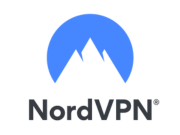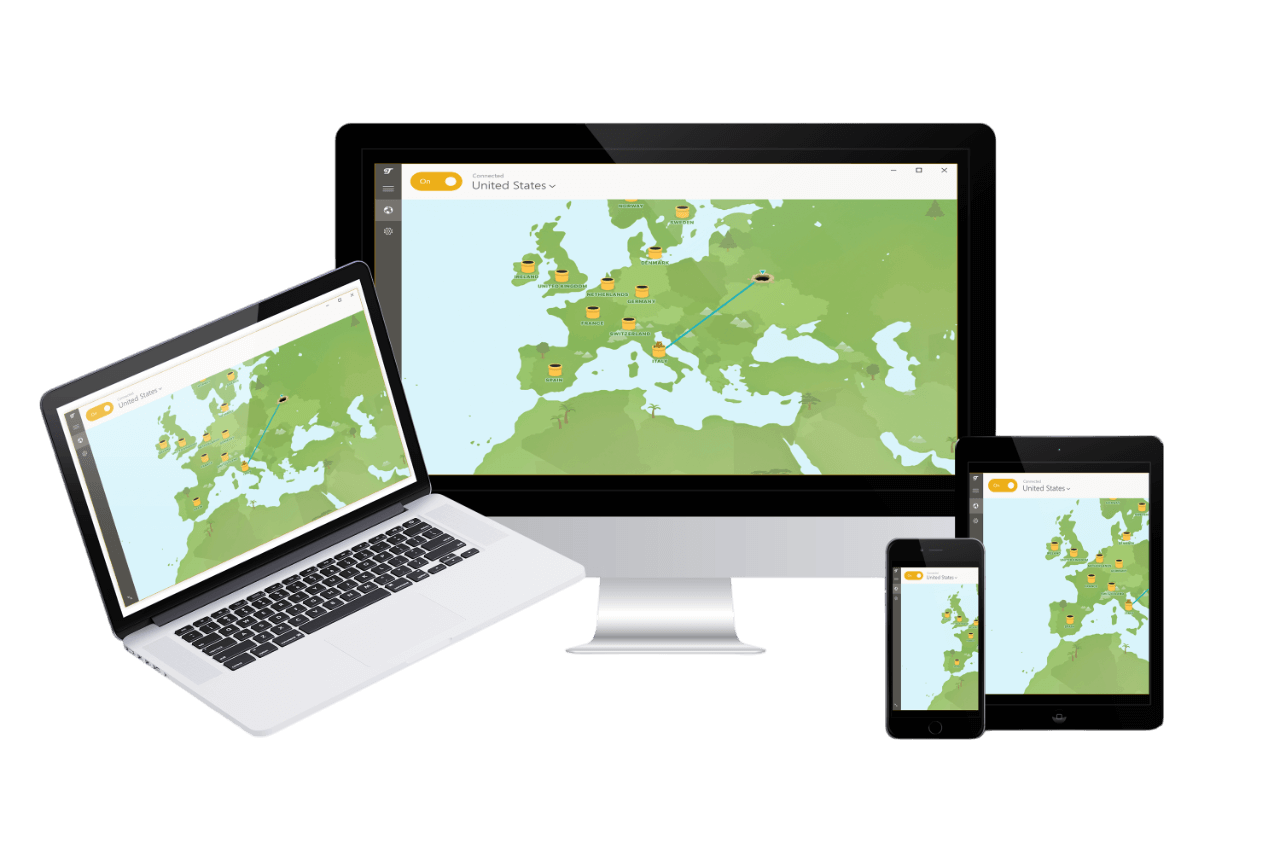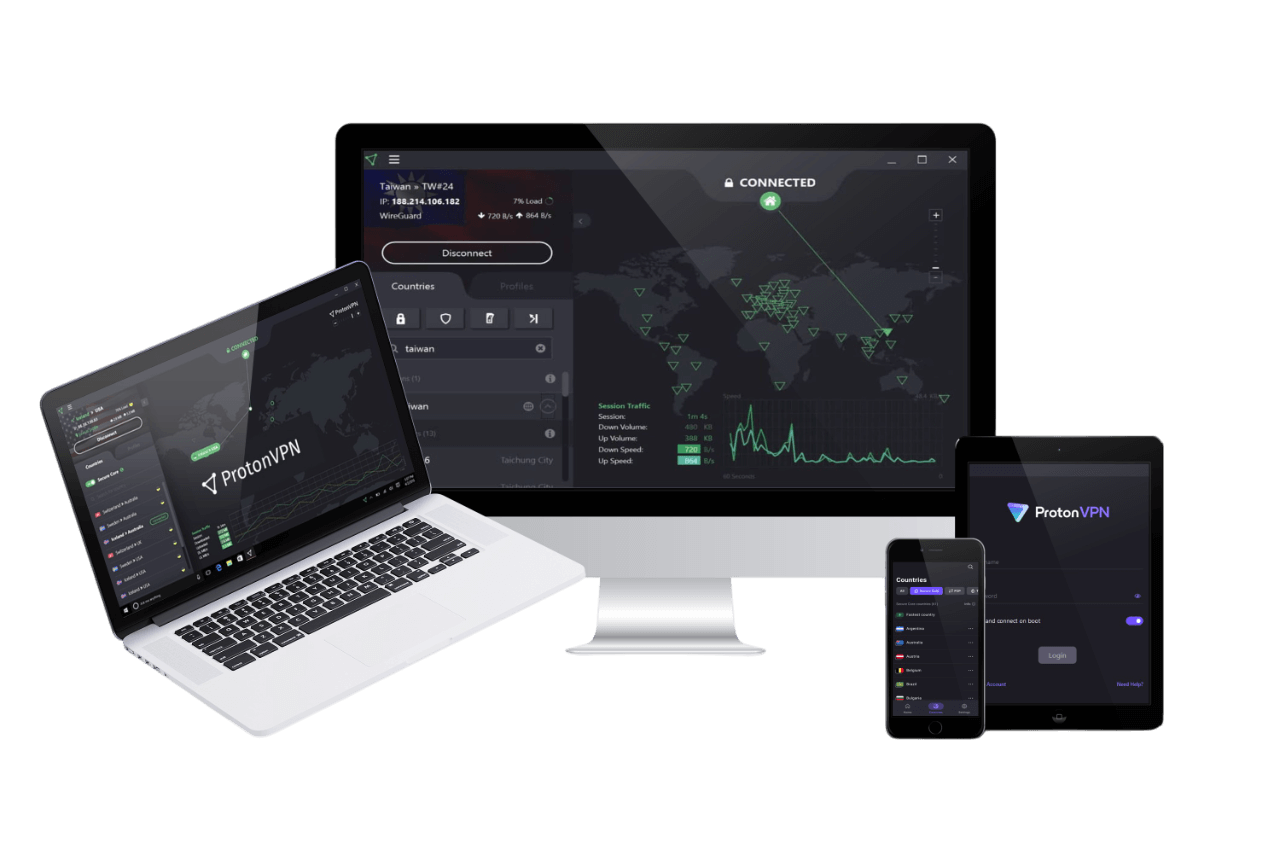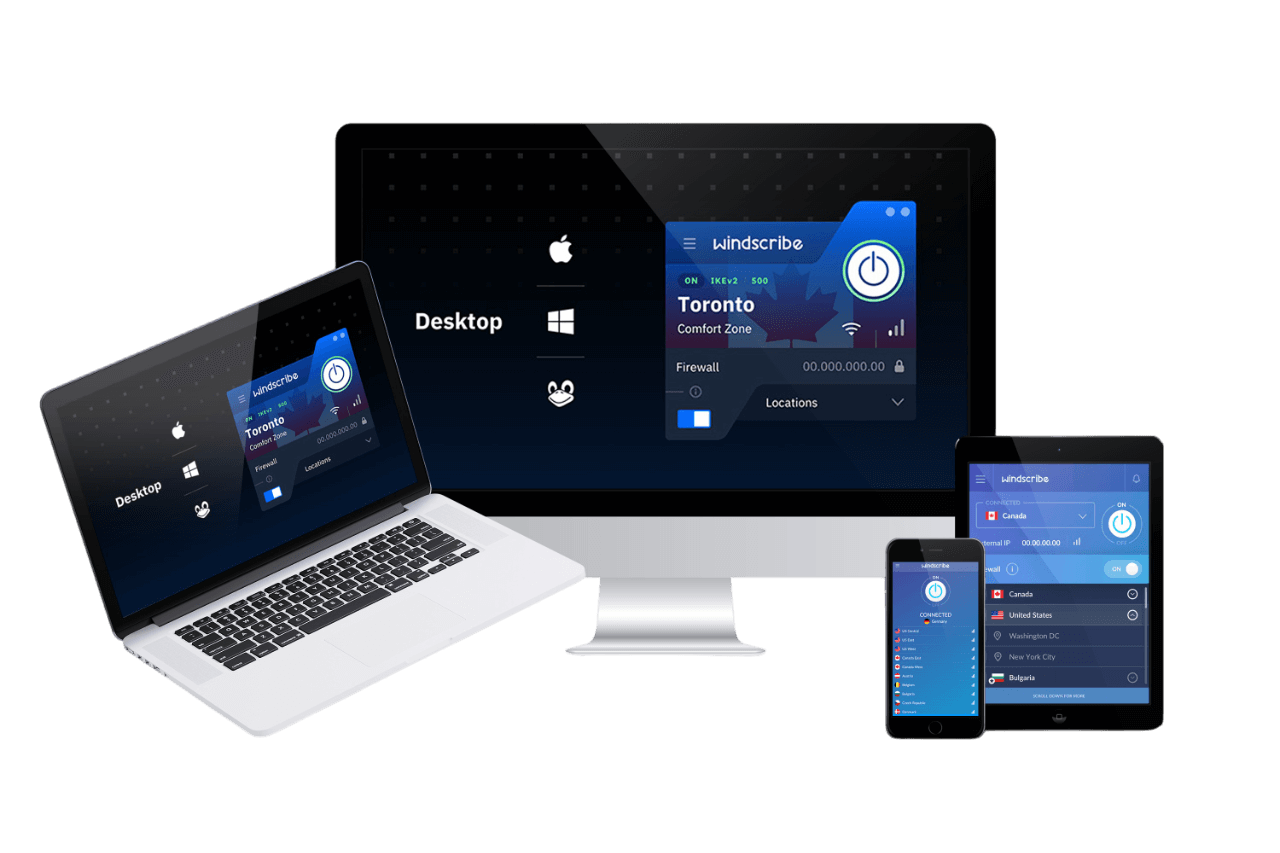How to get a VPN on your school Chromebook in 2025
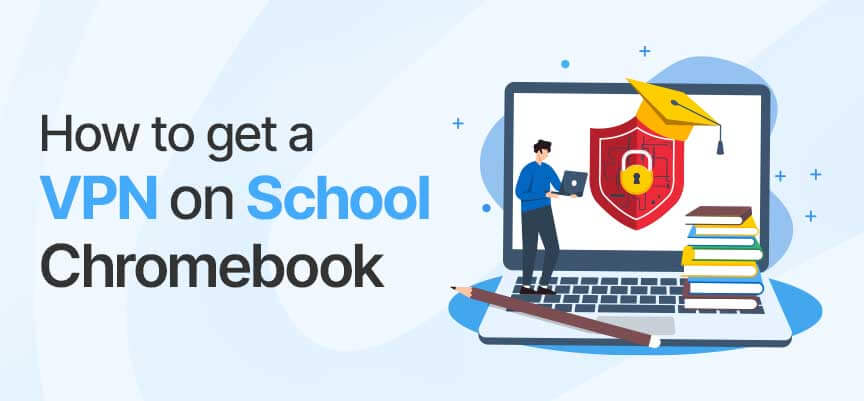
There are several reasons you’d install a VPN on your school Chromebook: to make sure your school Wi-Fi doesn’t restrict your browsing, protect your information on possibly unsecured Wi-Fi, or just access content in geo-restricted locations for research. Even without those benefits, a VPN for your school Chromebook is generally a good idea for enhanced privacy and security.
However, it’s important to choose the VPN that best suits your needs. Here’s an in-depth guide on the best VPNs for a school Chromebook.
Short on Time? Our Top VPN Picks for School Chromebook:

Secure, ad-free browsing on school Chromebooks, ensuring privacy, safety, and smooth experience.

Unlimited data, fast speeds, and secure browsing on school Chromebooks, perfect for online activities.

Generous data, anonymous sign-up, and unlimited connections on school Chromebooks for seamless browsing.
Top VPNs for School Chromebooks: An In-Depth Analysis
There are plenty of VPNs that can work for Chromebooks, but these are my recommendations for students using a Chromebook for school:
1. TunnelBear VPN: Best for Secure, Low Data Use
If you’re not using much data on your Chromebook (or use it only when you’re on your school’s internet connection), TunnelBear VPN is a great pick. Even with its free version, you can access any of its servers worldwide, allowing you to hide your location with unlimited simultaneous connections.
Another thing that students can appreciate about TunnelBear is that it doesn’t run any ads you might usually get when using free Android apps. This means you don’t experience any interruptions to your browsing while it’s on, leading to a smoother online experience. Overall, TunnelBear VPN is an excellent choice if you don’t always need a VPN running all the time.
Pros:
- Robust company privacy policies with regular audits
- Choose from servers from all over the world to spoof your location
- You can use multiple devices with a single account
Cons:
- Data limitations on the free plan mean you can only use this occasionally
- There are no multi-hop connections, so the Wi-Fi network you’re using is prone to cyberattacks
- Speeds may be slow compared to other VPNs because of their data limitations
2. Proton VPN: Fast, No Data Limits for School Use
If you want no data limitations on your VPN, go for Proton VPN. It has an extensive server network that doesn’t monitor or restrict how much traffic your Chromebook uses, which is very useful if you want to watch streaming services like Netflix or browse through Instagram and other social media while using a VPN.
Proton VPN suits students who only need a VPN specifically for their school Chromebooks. The lack of data restrictions and its quick setup make it easy to use once installed. However, the server limitations on its free service might not work as fast for users outside the US, Japan, and the Netherlands.
Pros:
- One of the fastest VPNs available for Chromebooks
- Privacy policies are audited regularly for effectiveness and compliance
- Easy-to-use interface
- It can hide the fact that it is installed on your device
Cons:
- Can only use one device at a time per account
- The free version only gives you access to US, Japan, and Netherlands servers
- Prone to high latency if your device is getting a weak Wi-Fi signal
3. Windscribe: Generous Free Plan and Privacy Features
If you’re unsure how much you’d like to use VPNs or want to give them a test run, I suggest going for Windscribe VPN. It has one of the most generous VPN data allocations among free VPNs, and its anonymous sign-up policy means you don’t need to give away any personal information about yourself to start using it.
Overall, Windscribe VPN is suitable for anyone who doesn’t want to commit to VPN use or wants to use a VPN without giving away their personal information. Once you’ve decided to use VPNs, you can easily opt for more advanced features with its affordable paid plans.
Pros:
- Transparent privacy policy about how it handles your data
- 2GB of bandwidth per month with anonymous sign-ups
- Unlimited simultaneous connections and devices with a single account
Cons:
- 10GB of bandwidth per month is locked behind signing up with a confirmed e-mail address
- Inconsistent VPN speeds depending on the strength of your connection
- Fewer VPN servers to choose from compared to other services
How To Pick The Best Chromebook VPN
Not every student will use their Chromebook the same way, which means using any VPN for your Chromebook is not a good idea. However, here are some guidelines on the features your VPN should always have to help you make a well-informed decision.
Pricing
While my recommendations earlier focused on free options, it’s also a good idea to consider paid VPNs or features. Some well-known VPNs, like NordVPN and ExpressVPN, have a great track record with their privacy options, aside from offering great security features that can protect your identity when browsing online.
If you want to stick to a free plan, you can disregard any pricing factors and follow the other considerations on this list.
Ease of Use
Ease of use is another important factor students tend to overlook when choosing VPNs. The less you have to configure your VPN after installation, the smoother your experience will be. Try to look for VPNs with easy-to-understand interfaces or ones that automatically select the best server to connect to.
Data Limitations
VPNs will usually have some data limitations on their free plans. You’ll either have to choose between the speed or how much data you can use with your VPN plans – if you want both, you’ll usually have to buy the premium version. Consider what type of browsing or internet use you’ll do with your Chromebook before choosing a VPN provider.
VPN Server Selection
The ability to choose between different servers worldwide is also a crucial VPN feature to remember. Not only does it allow you to access different region-restricted content, but it may also help improve your speed if you connect to a server that isn’t too far away from your actual physical location.
Device Limitations
Some VPNs only allow one device per free account, while others have no limit. Before you always opt for VPNs with no limits, remember that these providers often adjust some other parts of their features to accommodate ones without limitations. In my experience, most VPNs that allow unlimited devices or connections tend to slow down in terms of speed; keep that in mind if you’re using the VPN on other devices aside from your Chromebook.
How To Setup VPN Apps on Chromebook
Chromebooks use Google’s ChromeOS operating system, meaning that most applications (including VPNs) need to integrate with Google Chrome via a browser plugin or extension. To install a VPN on your Chromebook, do the following:
- Open your Google Play store.
- Check if you can install the VPN you want to use as an extension.
- Install the VPN extension in your Chrome browser.
- Navigate to the VPN website you wish to use, then create an account.
- Log in to your account and confirm it’s linked to your Chromebook.
- Your Chromebook should automatically use your VPN’s settings whenever you open Google Chrome.
If your school’s Wi-Fi connection or Chromebook settings do not allow VPNs, you need to connect to another Wi-Fi connection and download the VPN Chrome extension. The VPN will work as intended after installation, even if you connect back to your school’s Wi-Fi connection.
Installing VPNs via APK in Chromebook
Another way you can install a VPN in your Chromebook is through an APK (Android Package Kit). Because ChromeOS supports Android applications, any VPN with an APK file can work once installed. You have to download the APK on another computer.
- Find the APK of the VPN you want to install on their website.
- Download the APK to your USB or external flash drive.
- Transfer the APK to your Chromebook and install it from there.
- Link the VPN to the VPN account you made.
The advantage of installing VPNs in a Chromebook via APK is that you can install native VPN applications in addition to VPN extensions. Remember that a Google Chrome extension will only work when using the Chrome browser. A native VPN app installed via APK protects all traffic from your Chromebook, not just the traffic you run through the Chrome browser.
Paid, Free, Freemium VPNs
One question I often see students ask is, “Is getting a paid VPN worth it for a Chromebook”? There are good arguments for either side:
- Free versions cost nothing, which can be helpful if you’re a full-time student and you don’t have a part-time job. The drawback of this is more limited features for you overall, like how many servers worldwide you can access or how much data you can course through your VPN.
- Paid versions have all the features you need in a VPN. However, if your VPN has too many features, you may be paying for services you do not want, and it’s rare that you can pick and choose which features you’d like.
Given these considerations, there’s nothing wrong with using a free VPN if it meets all your needs. But if you want to be extra secure—as some VPNs offer more privacy and online security options—going for a paid VPN is well worth the cost.
Are freemium VPNs worth it?
There are also “freemium” versions between paid and free VPNs. These VPNs have a variety of features that you can mix and match depending on your needs. At first glance, freemium VPNs strike the ideal balance between the comfort of using paid features and the necessities of free versions.
But from my experience, very few freemium VPNs are worth the price. Freemium VPNs heavily encourage you to purchase their paid services, meaning the features you’ll get may not meet your needs. Their protections and features can be inconsistent or limited, drastically decreasing how smoothly your VPN works.
My recommendation is the same as above: if the terms of a freemium VPN seem appealing to you, you may as well go for the paid VPN. This way, you’ll be well-informed about the quality of the service that you’ll be getting. Most paid VPNs also make it a point to be as accessible as possible with lower prices via promotions and sales.
Conclusion
School Chromebooks can always use a VPN for added browsing flexibility, online security, and easier access to other applications and programs. With the already robust ChromeOS and overall ease of use of Chromebooks, VPNs can enable you to excel in your studies and everywhere else.
The VPNs I recommended above work well even as free services; just make sure their specific features meet your needs. If you’re happy with their performance, you can also upgrade to their premium plans or choose another premium VPN later.
FAQs
Most students usually get a VPN for their school Chromebooks to access social media or use streaming services. However, there are also excellent security and privacy reasons to install a VPN on your Chromebook.
One example I like to tell students is that their school Wi-Fi isn’t always safe. It can be configured incorrectly or not at all, which means your school network and any device connected to it can risk a cybersecurity attack. Getting a VPN reduces your risk while also keeping your identity safe online.
Any VPN installed on a Chromebook is usually vetted by Google to be safe, especially if you’ve downloaded it through the Google Play Store. Google’s Play Protect automatically scans browser plugins and Chrome extensions, so you can rest easy that your VPN is safe to use.
However, you should also check if your school has any restrictions or regulations about using VPNs. Network administrators can check your device if you hand it in for inspection or monitor your traffic once you connect to the school Wi-Fi.
Most free VPNs will only have the bare minimum features like choosing different servers or monitoring your traffic in real time. However, some useful features you can always look out for include:
- Kill Switch: automatically shuts off your internet if your connection fails, which ensures your traffic is always protected
- Split tunneling: allows you to route specific applications through your VPN while keeping other applications outside of it
- Dedicated ISP: your account gets assigned a unique IP that isn’t shared with other VPN users, which makes you less likely to be blocked by websites/services that scan for VPN use
Additional features are usually only available with premium VPN subscriptions, but newer providers may offer some limited features in the future.

